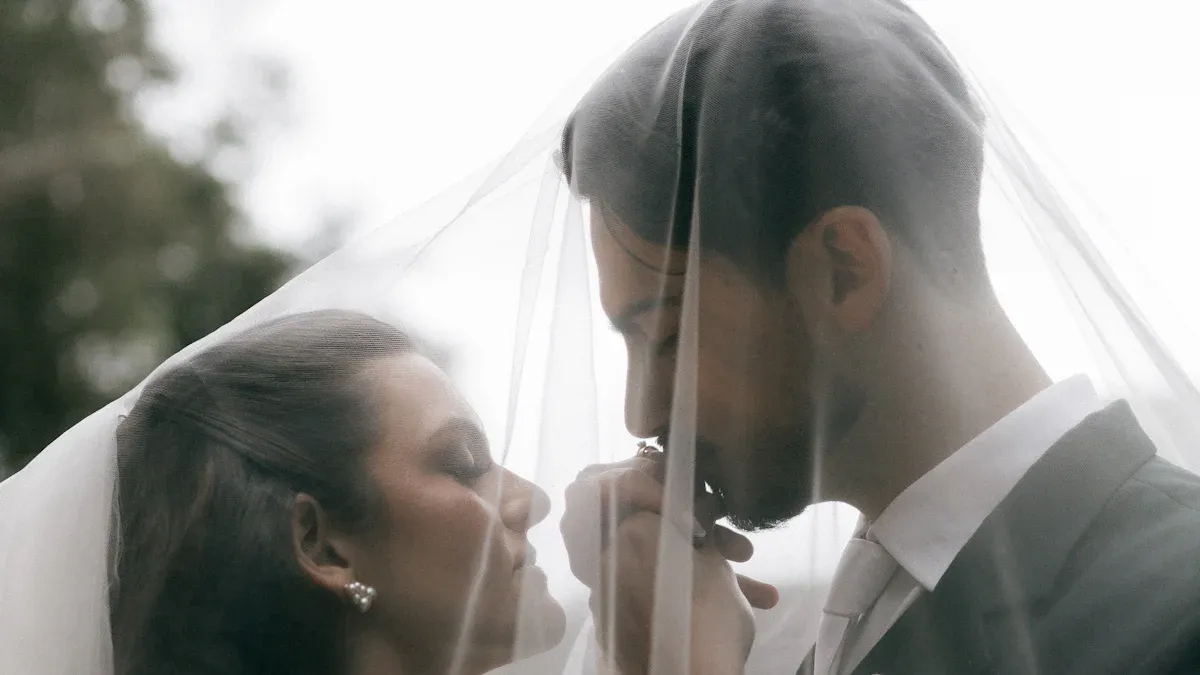Last updated on November 20th, 2025 at 06:33 am
When two narcissists in a relationship are together, they often fight for control. Each person tries to be in charge, using tactics like ignoring or tricking each other to maintain dominance. Over time, it becomes clear that they do not care about feelings and fail to connect with one another.
Occasionally, they may say nice things, but then quickly follow up with mean remarks. These relationships feel unstable and transactional, lacking in trust and genuine care. Have you ever felt that your relationship was more about winning than loving?
Key Takeaways
When two narcissists are together, they often fight for control. This causes many arguments and stress.
Both people want to be in charge. Each tries to be better than the other. This can make them feel far apart.
They often use tricks like gaslighting and love bombing. This makes the relationship seem like a game.
They do not connect well emotionally. Both care more about their own needs than about each other.
Their relationship is usually about getting something for themselves. They do things for personal gain, not real care.
At first, the relationship may feel exciting because of love bombing. But this feeling does not last long. Soon, they start to fight.
They often have trouble trusting each other. It is hard for them to stay loyal. Both may look for attention from others.
Two Narcissists in a Relationship

When two narcissists are together, there are special problems. Their relationship is like a tug-of-war. Both people want control and attention. Let’s look at what happens when both have strong narcissistic traits.
Power Struggles
You might feel like you are always fighting for control. Both partners want to be the leader. They argue about who makes choices or gets more praise. This makes things tense and tiring.
Both want to talk the most and lead at parties.
They do not like to compromise, because it feels like losing.
Fights are loud and happen a lot, with no one giving in.
If there is only one narcissist, the power struggle is one-sided. With two narcissists, the fight for control never ends. Each tries to beat the other, so there is always conflict and things feel shaky.
Competition for Dominance
You may see that competition happens every day. Each partner wants to look better, at work, with friends, or at home. This shows up in many ways:
Telling stories to seem more important.
Correcting each other in front of people.
Trying to win every fight, even small ones.
This rivalry makes the relationship feel like a contest. Instead of working together, both want to win. Over time, this can cause trust problems and make them grow apart.
Manipulation Tactics
Manipulation is common when two narcissists are together. Each person uses tricks to get their way or keep control. Some common tricks are:
Gaslighting: Making you doubt your memory or feelings.
Playing the Victim: Pretending to be hurt to get sympathy or avoid blame.
Projection: Blaming you for things they do themselves.
Love Bombing: Giving lots of love to win you over, then taking it away.
Triangulation: Bringing in someone else to make you jealous or confused.
These tricks can make you feel lost and unsure. The relationship can feel like a game, with both trying to outsmart each other.
Kind acts in these relationships often have a catch. Instead of real care, each person wants something back.
Emotional Disconnection and Transactional Nature
When two narcissists are together, real emotional connection is missing. Both focus on their own needs, not on building a bond. You may feel tired and empty because there is no warmth or empathy.
Both see the relationship as a way to get what they want.
Nice actions are used to control, not to show love.
The relationship feels shaky, with lots of ups and downs.
Imagine two people trying to fill their cups from an empty well. Neither gets what they need, and both feel thirsty for real connection.
Summary Table: Common Dynamics in Relationships Between Two Narcissists
Dynamic | How It Appears | Impact on Relationship |
|---|---|---|
Constant arguments over control | Instability, frequent fights | |
Competition | Outshining, correcting, one-upmanship | Emotional distance, rivalry |
Manipulation Tactics | Gaslighting, projection, triangulation | Confusion, lack of trust |
Emotional Disconnection | Lack of empathy, transactional actions | Feeling drained, unfulfilled |
Relationships between two narcissists often turn into a fight for attention and power. Neither wants to give in or put the other first. This causes big fights and no real emotional closeness.
If your relationship feels like a contest, not a team, you might see these patterns.
Attraction and Early Stages

At the start, two narcissists feel a strong pull to each other. The beginning is exciting and feels very intense. You might wonder why it feels so powerful. There are a few reasons for this early connection.
Love Bombing
Love bombing often happens right away. Your partner gives you lots of attention and gifts. They say many nice things about you. You might get many texts or surprise visits. Sometimes, they make big promises. Love bombing is not just about being kind. It is a way to gain control and make you feel special.
Too much attention can make you feel wanted.
Your partner may call you perfect or their soulmate.
The goal is to make a strong bond fast.
A recent survey showed 70% of people saw love bombing in their relationships. This is common when two narcissists meet. Both people use love bombing to impress each other. You may feel like you are in a whirlwind romance. But the strong feelings can fade quickly.
Rushed Commitments
After love bombing, rushed commitments can happen. Your partner may talk about moving in or getting married soon. They might make big plans before you know each other well. The excitement makes you want to say yes. But it is smart to stop and think first.
Rushed Commitment Signs | What It Means | Why It Happens |
|---|---|---|
Talking about marriage or kids early | They want to lock you in | Creates illusion of deep bond |
Making big financial decisions fast | They want control | Manipulates your choices |
Promising a future together | They want you to trust them | Gains your loyalty quickly |
Narcissists use future faking to seem invested. You may feel like you are living a dream. But these promises often do not last. Take time to know your partner before making big choices.
Mutual Admiration
In the early stages, both people admire each other. You might like your partner’s style or confidence. Your partner may praise your looks or success. This makes the bond feel strong at first.
Both people reflect each other’s self-image.
You may feel proud to be with someone like you.
The relationship feels new and exciting.
Mutual admiration can make you feel special. You see yourself in your partner, and they see themselves in you. This creates a cycle of praise and attention. Later, this can turn into competition or fights.
Emotional Connection
Lack of Empathy
When you date another narcissist, empathy is missing. Your partner may not listen or care about your feelings. This makes it hard to fix problems together. You both want to talk, but no one wants to listen.
Arguments often stay unresolved.
Both blame each other instead of working as a team.
You feel tired and hurt after every fight.
Without empathy, trust cannot grow. You do not feel safe. Every fight becomes a battle. No one wins. You may always defend yourself. You rarely feel understood.
Unmet Needs
In these relationships, your emotional needs are not met. You want love, safety, and respect. You rarely get these things. Narcissists focus on their own needs. This leaves you feeling empty.
Many people say they do not feel valued or safe. You may feel worthless or always seek approval. When both act this way, the relationship feels cold and distant.
You may notice these unmet needs:
You do not feel loved or important.
You miss real talks about your feelings.
You feel like you must prove yourself.
The need for control and approval often starts in childhood. If you did not feel good enough growing up, you may keep looking for validation now. In a relationship with another narcissist, you rarely find it. The focus stays on winning, not connecting.
Challenges with Fidelity
Trust is a big problem when two narcissists are together. Studies show narcissism leads to more cheating. Both partners want attention and praise. They may look outside the relationship for it.
Study | Findings |
|---|---|
Buss and Shackelford (1997) | Found a link between narcissism and cheating in marriage. |
Campbell, Foster, & Finkel (2002) | People reported more cheating with narcissistic partners. |
Hunyady, Josephs, and Jost (2008) | Showed a strong connection between narcissism and self-reported cheating. |
Atkins, Yi, Baucom, and Christensen (2005) | Narcissism predicted cheating in couples seeking therapy. |
The Relationship Between Narcissistic Traits and Attitudes Toward Infidelity | Narcissism affects satisfaction and increases the risk of cheating. |
Your partner may flirt or hide things. You might feel tempted to do the same. This cycle of mistrust makes it hard to feel safe or loyal. When both struggle with fidelity, the relationship gets even more unstable.
Relationship Patterns
Transactional Dynamics
When two narcissists are together, every action has a cost. Each person does things for their own gain. Both want something back for every nice word or act. This makes the relationship feel like a business deal, not love.
Most talks are about getting what they want.
Both want to be admired and treated as special.
One may give praise, then take it away soon after.
They often try to outdo each other.
Real support is rare, and things feel unfair.
In these relationships, you may feel like you must keep track of everything. Every nice thing comes with a price. If you do not give enough attention, your partner might get upset or pull away.
Cycles of Idealization
At first, you may think you found the perfect person. Both give lots of praise and attention. This stage is called idealization and feels very exciting. You might hear, “You are the best thing ever.” But this does not last long.
Soon, things change. Criticism and being ignored replace the praise. Your partner may point out your flaws or stop caring about your needs. This is the devaluation stage. You may try harder to please them, but it does not work.
The last stage is discard. One person may end things suddenly, with no warning. They may move on fast and start the same cycle with someone else. This shows there is no real emotional bond. The focus is on getting needs met, not trust or closeness.
Volatility
Relationships between two narcissists are rarely calm. You may see lots of fights and quick mood changes. Power struggles and distance make things stormy. Even small problems can turn into big arguments.
Both may feel drawn to each other at first because they are alike.
Power struggles and no empathy make things shaky.
Setting rules can help, but both want control.
You may feel like you are always careful, not knowing what will happen. The relationship can go from loving to angry very fast. This leaves you tired and unsure.
Table: Key Patterns in Narcissist Couples
Pattern | What You Might Notice | How It Feels |
|---|---|---|
Transactional Dynamics | Keeping score, expecting payback | Unfair, exhausting |
Idealization Cycles | Sudden praise, then harsh criticism | Confusing, hurtful |
Volatility | Frequent fights, mood swings | Unstable, stressful |
If you notice these patterns in your relationship, you are not alone. Many people face these problems when both partners have strong narcissistic traits.
Psychological Impact
Mental Health Effects
Living with another narcissist can hurt your mental health. The relationship feels like a wild ride with many ups and downs. Your self-esteem gets weaker as time goes by. You start needing others to feel good about yourself. This can make you feel empty and unsure.
You may notice these effects:
Big changes in your mood
Self-esteem that breaks easily
Needing praise from others
Many people also have these problems:
Staying away from some places or people
Not sleeping well at night
Feeling numb or losing feelings
Pulling away from friends or family
Losing hope for the future
Always feeling nervous or jumpy
Stomach aches or headaches
Using drugs or alcohol to feel better
Thinking about hurting yourself
If you see these signs, you are not alone. Many people feel this way when stuck in a toxic cycle.
Relationship Longevity
Relationships between two narcissists do not last long. Most people cannot handle all the fighting and lack of trust. Stories show these relationships last about six months. Some end sooner, and some last longer if both do not let go. There is no exact research, but experts say these relationships do not last.
Factor Affecting Longevity | Description |
|---|---|
Power Struggles | Fights for control make the bond weak |
Lack of Emotional Connection | No trust or empathy keeps partners apart |
High Volatility | Many arguments lead to quick breakups |
Need for Validation | Both look for attention elsewhere and split |
You may feel the relationship is strong at first, but it ends fast.
Signs of Collapse
You can tell when a relationship between two narcissists is ending. Warning signs show up before the final breakup. Look for these changes:
Getting mad over small things
More fighting or yelling
Blaming or denying things
Pulling away from others
If you see these signs, the relationship may be ending soon. You might feel happy, sad, or both. Remember, you can protect yourself. Set boundaries, ask for help, and take care of yourself to move forward.
Conclusion
When two narcissists are together, they often fight for control. Both want to win and be in charge. This leads to lots of arguments and distance. You may feel tired and unhappy. The relationship feels like a game with no winner. To stop these problems, you can try some things:
Couples therapy can help you talk about problems
Individual counseling helps you learn about yourself
Set clear rules and say what you will not accept
It takes hard work to make things better. With help, you can have a healthier relationship.
Transform your Inner Chaos into authentic personal growth!
Stay informed on the latest research advancements covering:
Co-Parenting With A Narcissist
Frequently Asked Questions
What happens when two narcissists date each other?
You see constant power struggles. Both want control and attention. The relationship feels like a contest. You rarely find peace or trust. Emotional connection stays weak.
Can two narcissists ever have a healthy relationship?
You face many challenges. Both partners must want change and seek help. Therapy can teach new ways to connect. Without effort, the relationship stays unstable.
Why do narcissist couples break up so often?
You notice frequent fights and lack of trust. Both partners want to win. Emotional needs stay unmet. The relationship ends when neither feels satisfied or valued.
How can you spot a narcissist couple?
You see lots of competition and one-upmanship. Both partners seek praise and control. They rarely show empathy. The relationship looks dramatic and unpredictable.
Is it possible for two narcissists to stay faithful?
You find loyalty difficult. Both partners crave attention from others. Studies show higher rates of cheating. Trust issues make fidelity rare in these relationships.
What should you do if you are in a narcissist couple?
You can set boundaries and seek support. Therapy helps you understand patterns. Focus on self-care. Decide what you need for a healthy relationship.
Are children affected by narcissist couples?
You notice children feel confused and stressed. They see fights and lack of warmth. Kids may struggle with self-esteem. Support and counseling help them cope.
